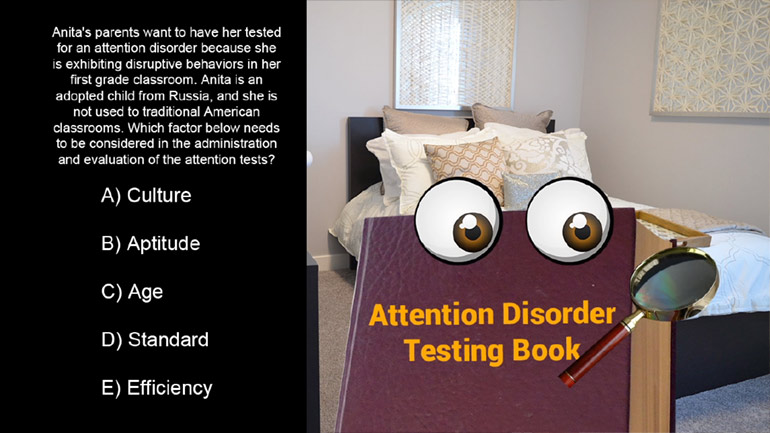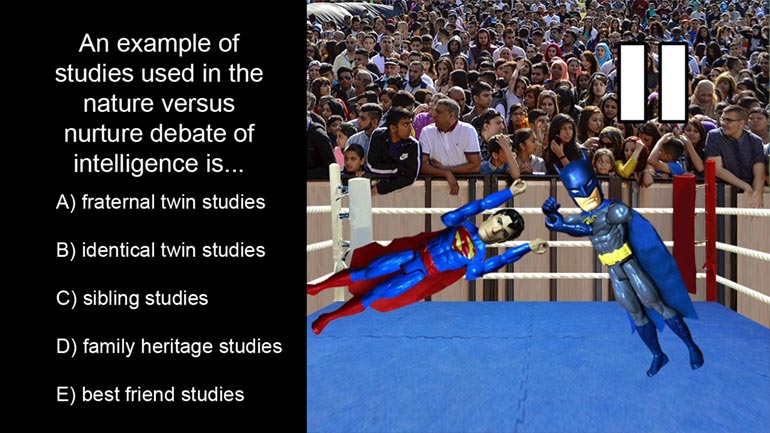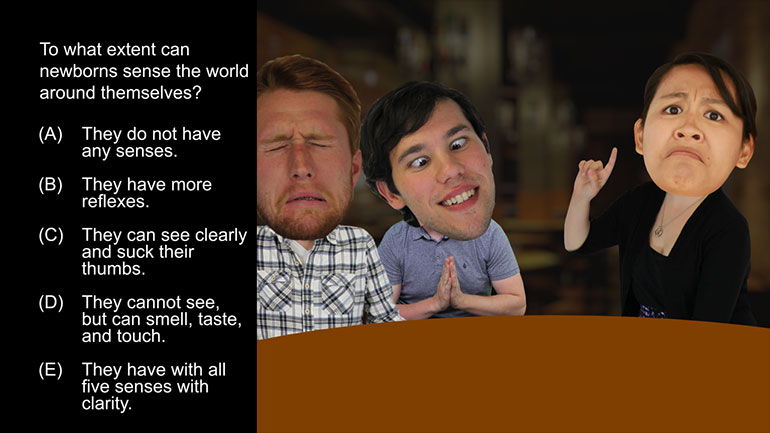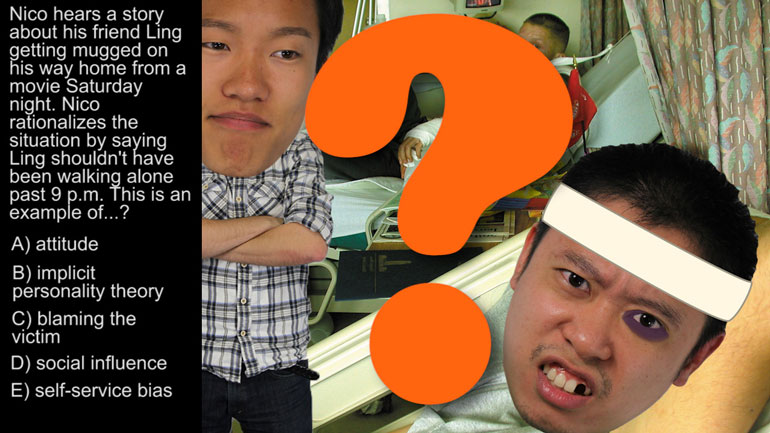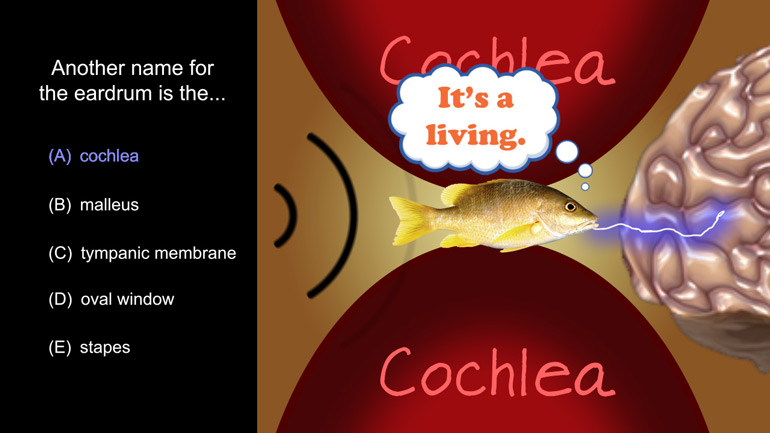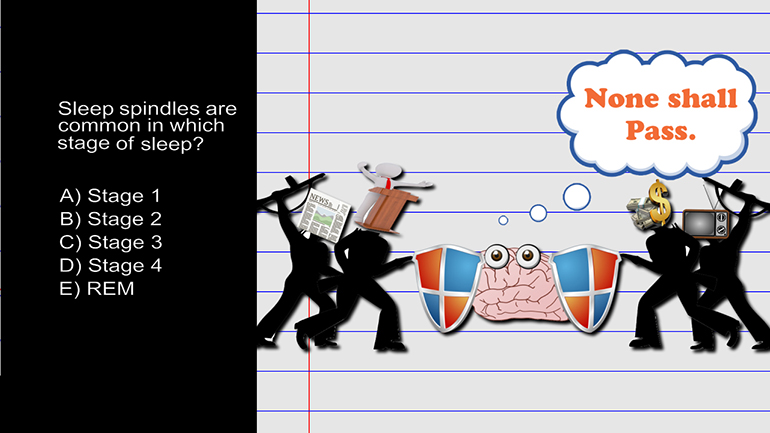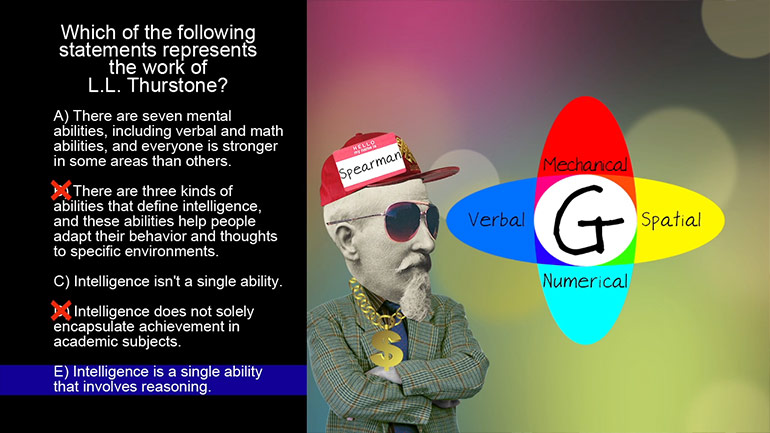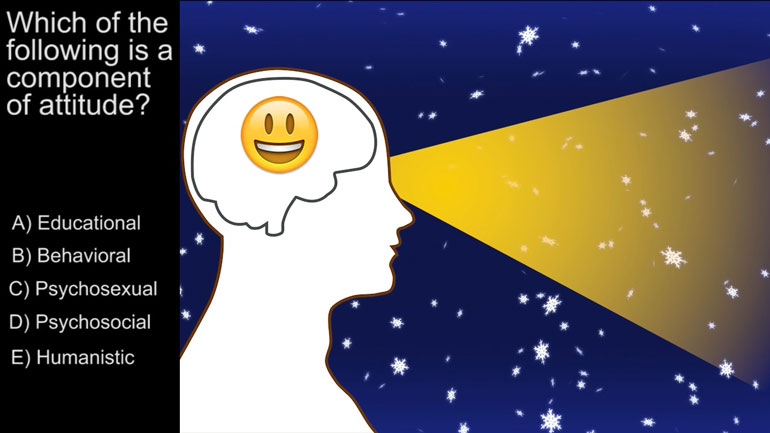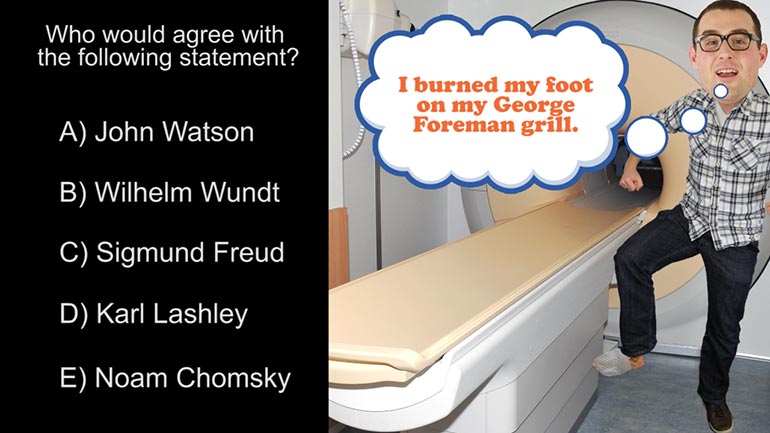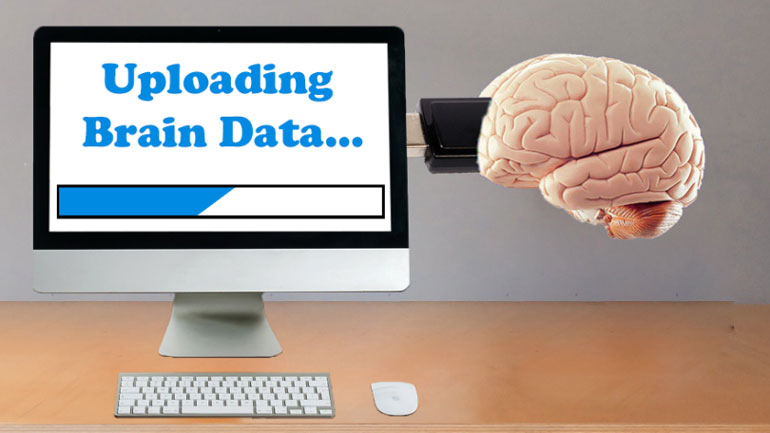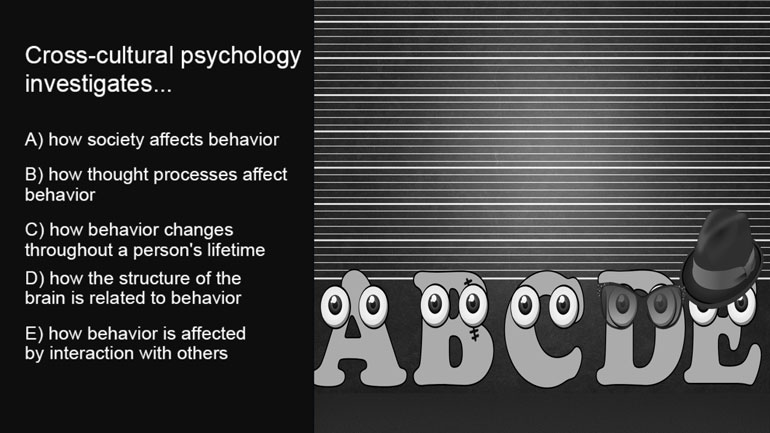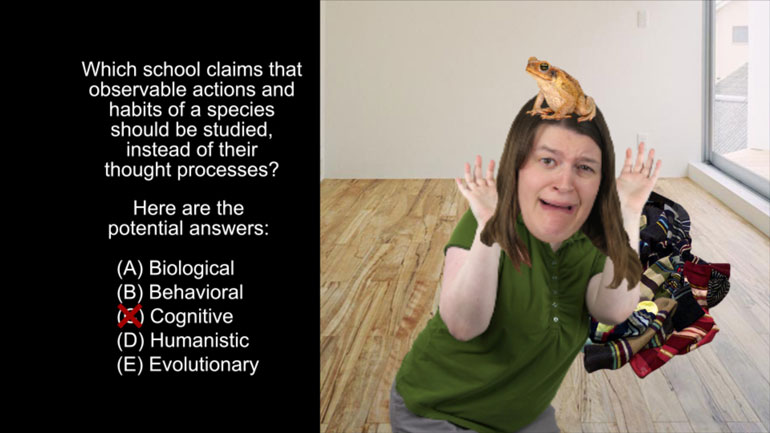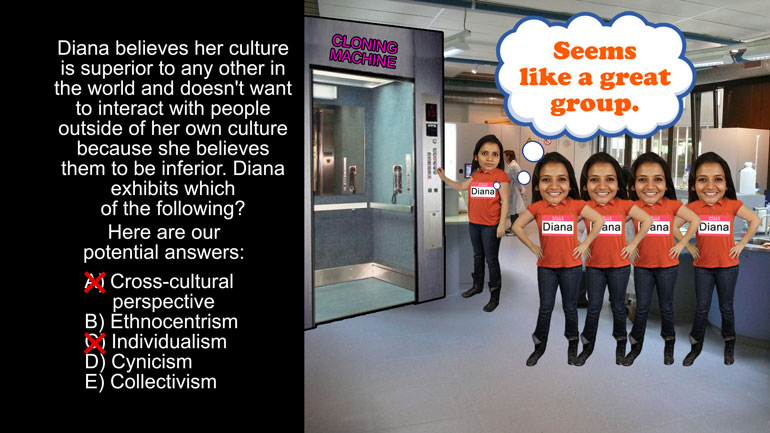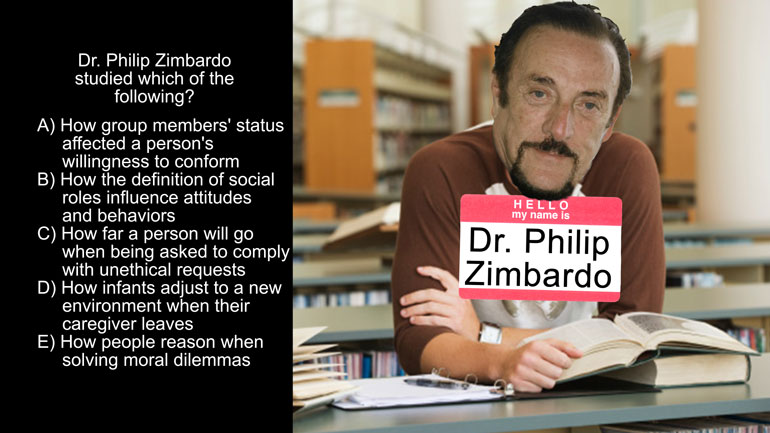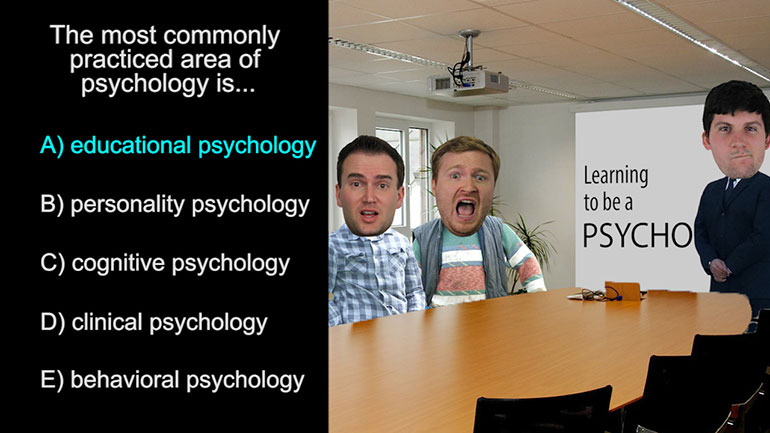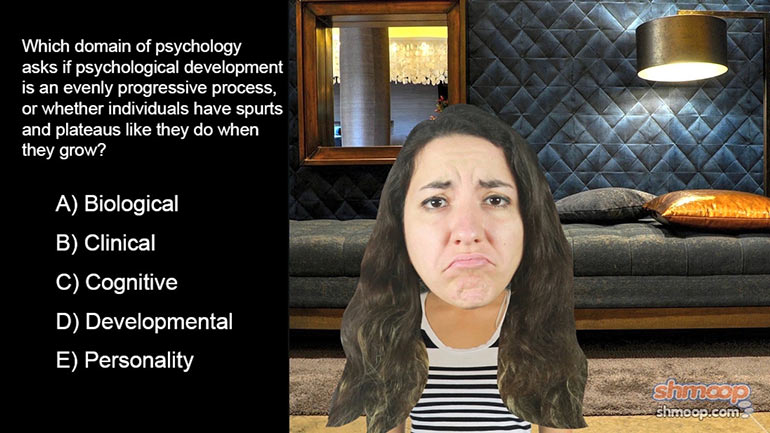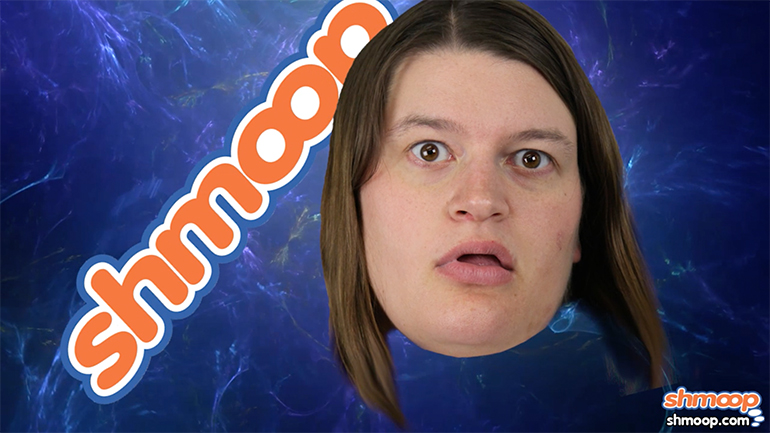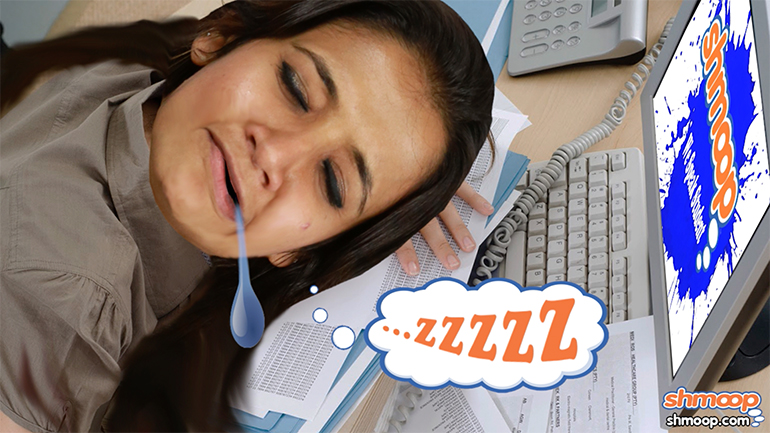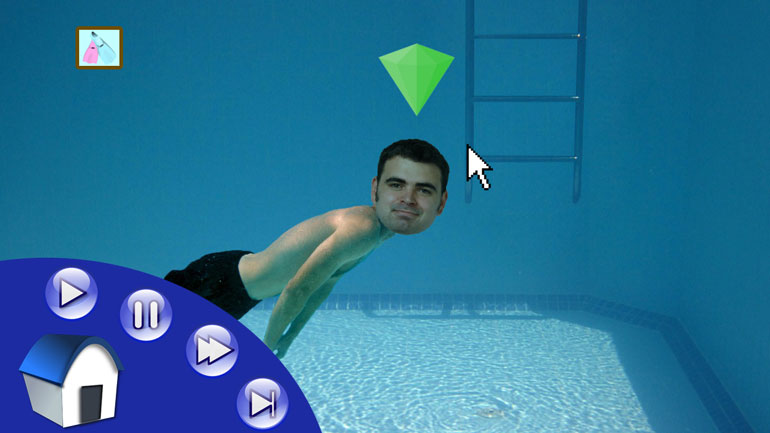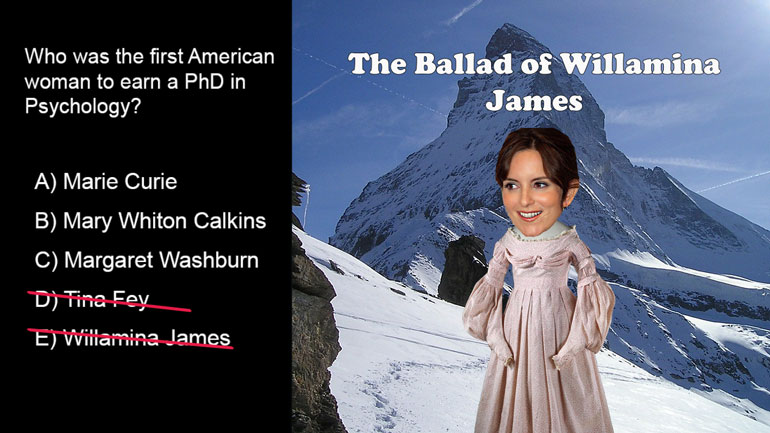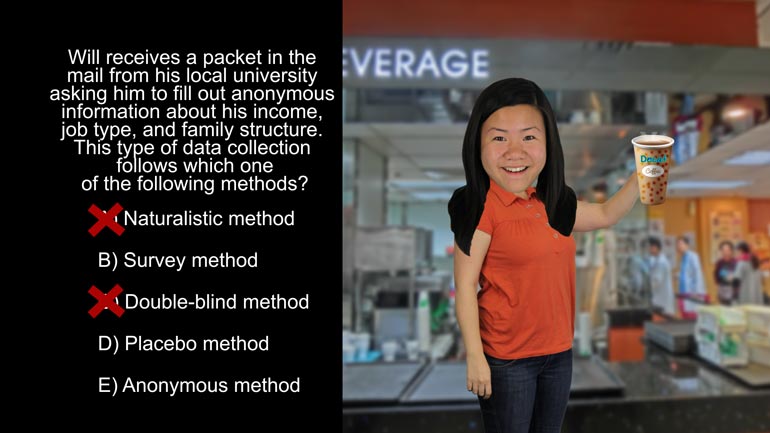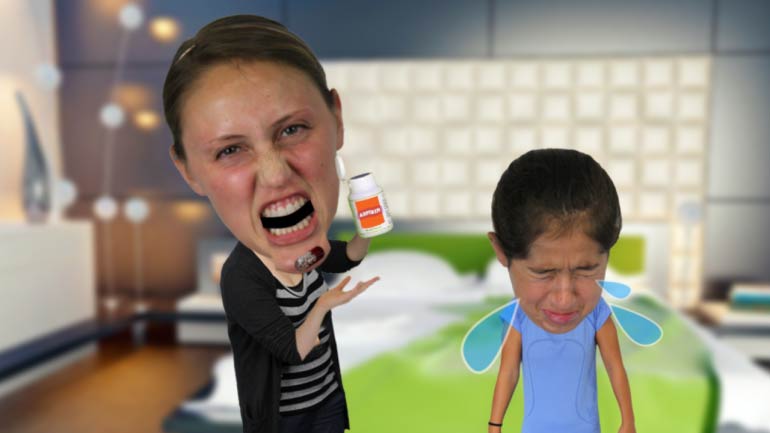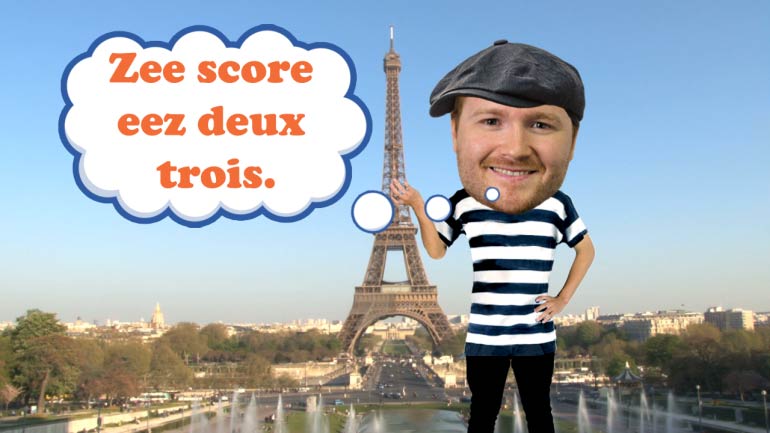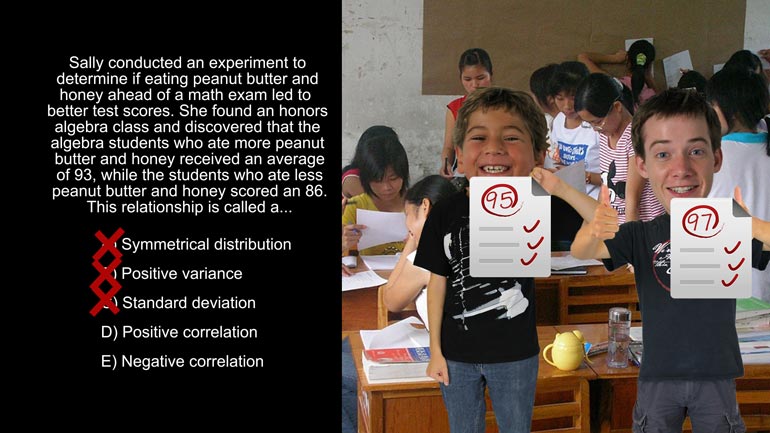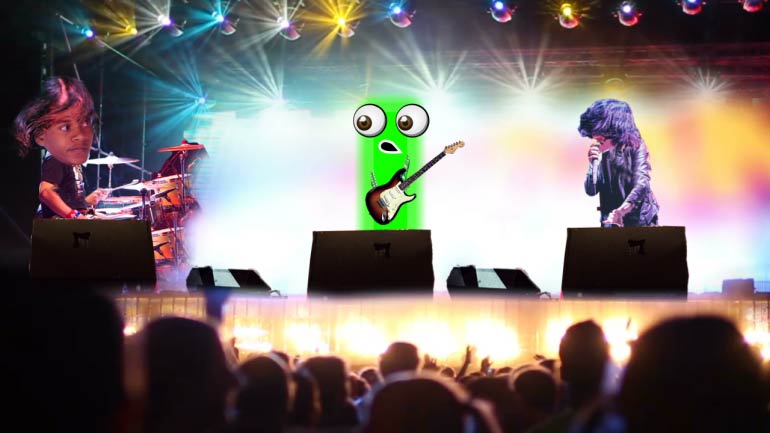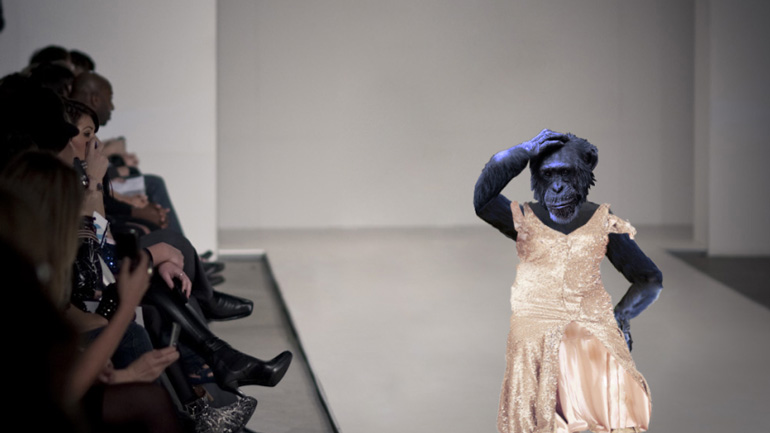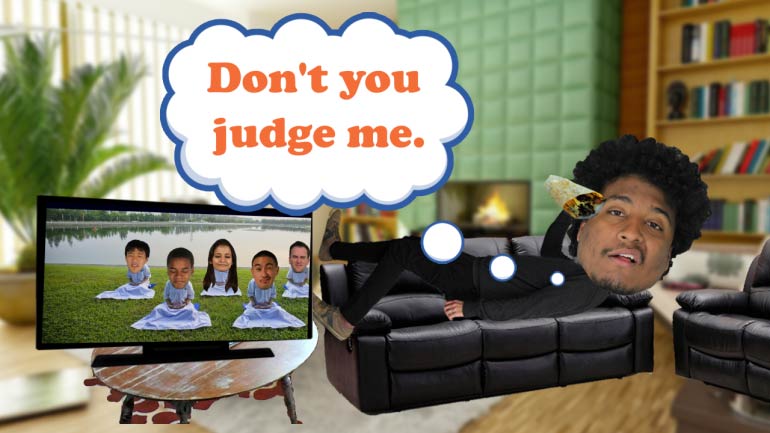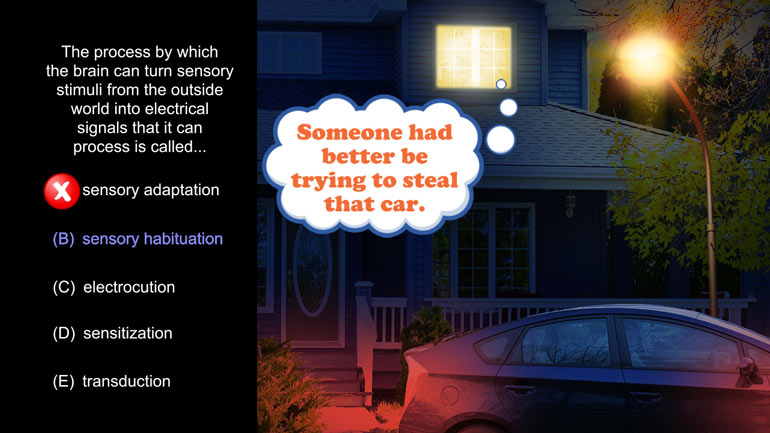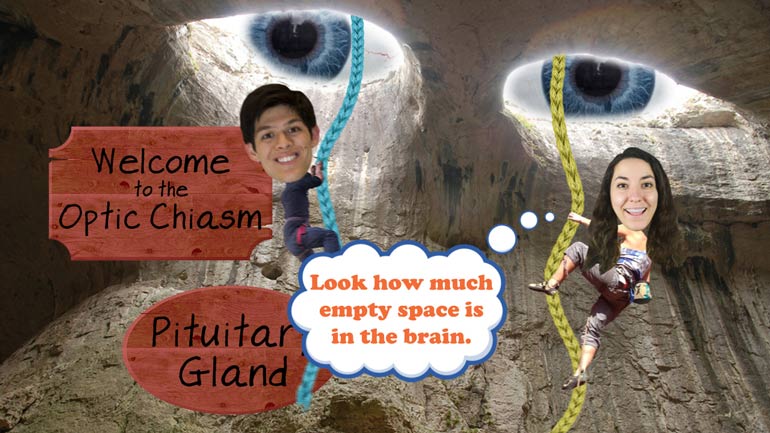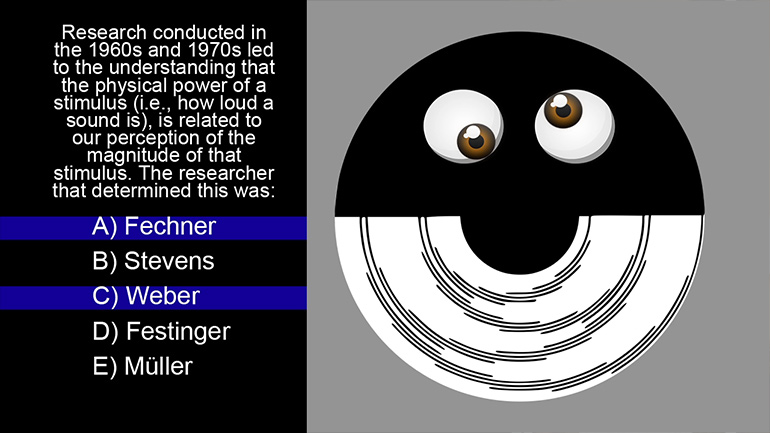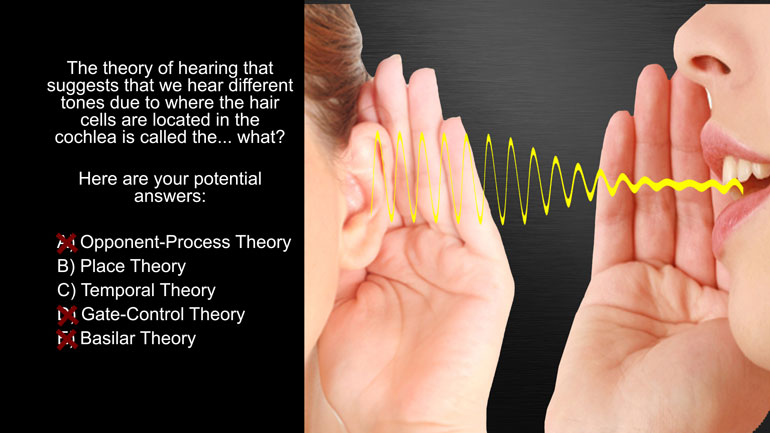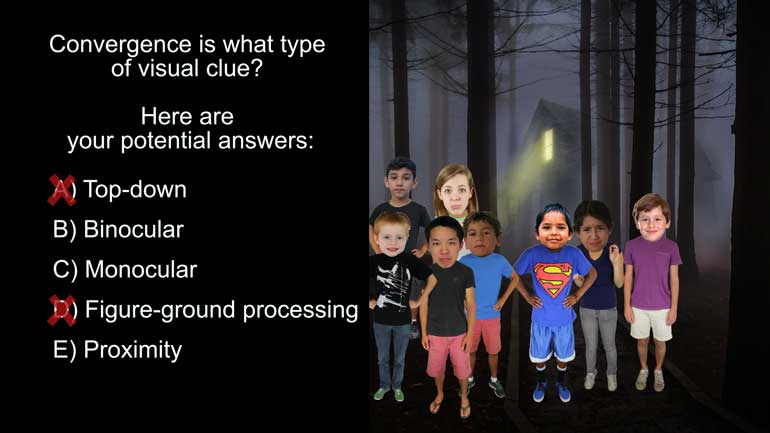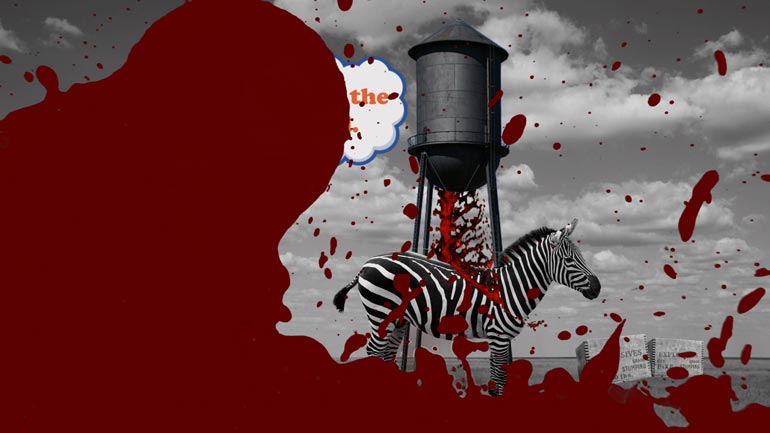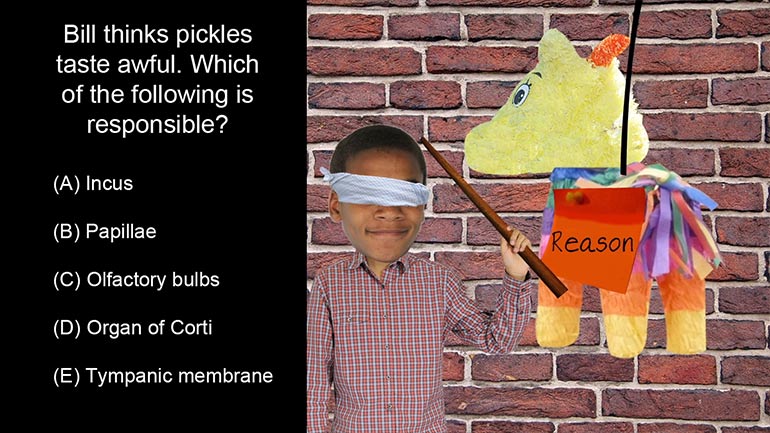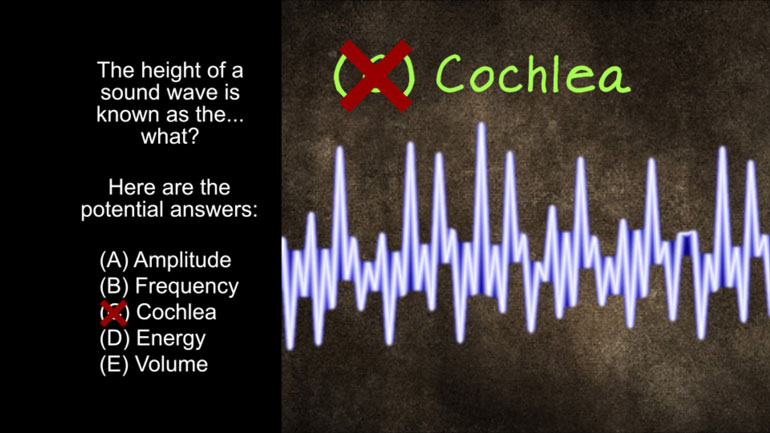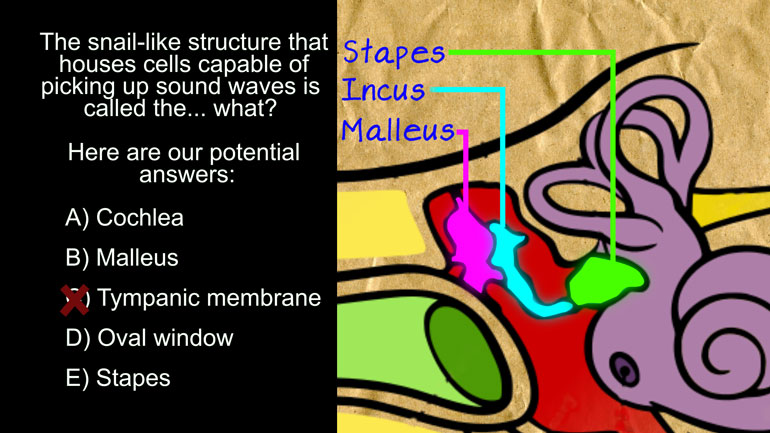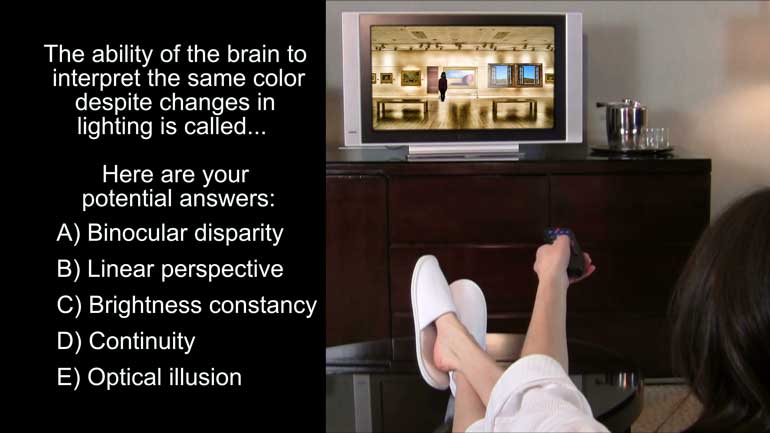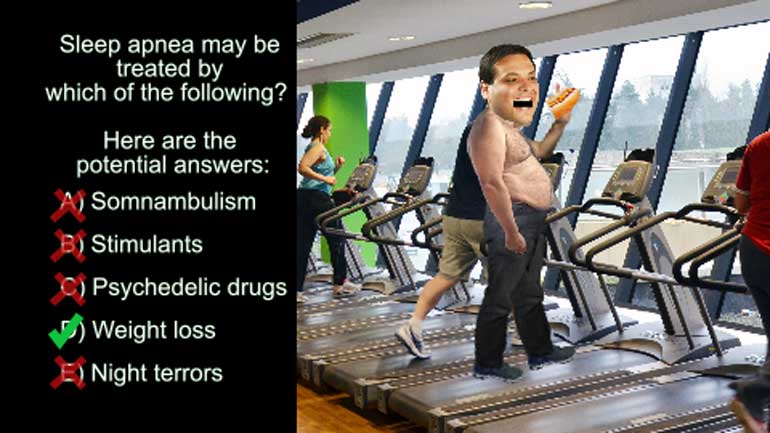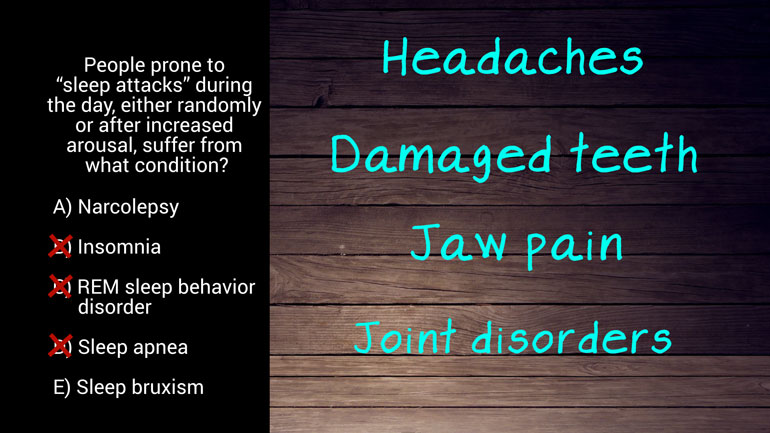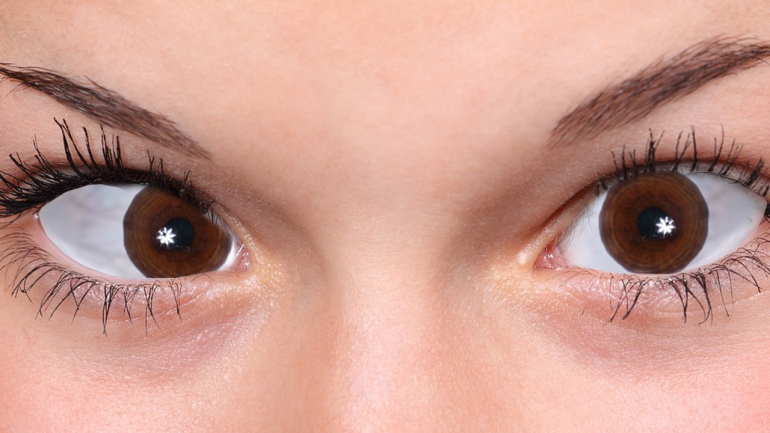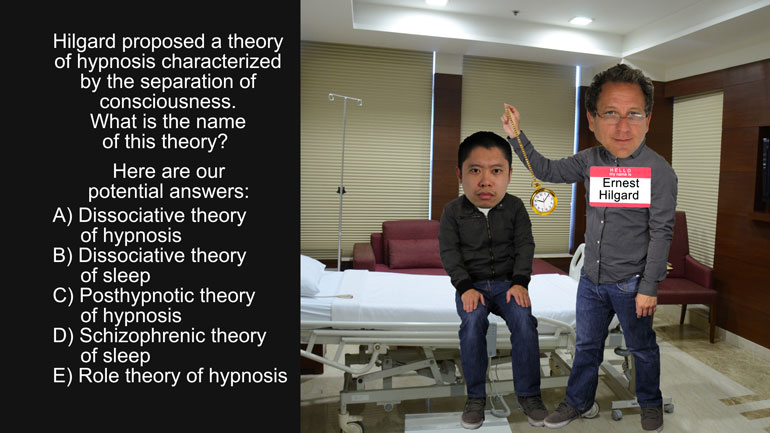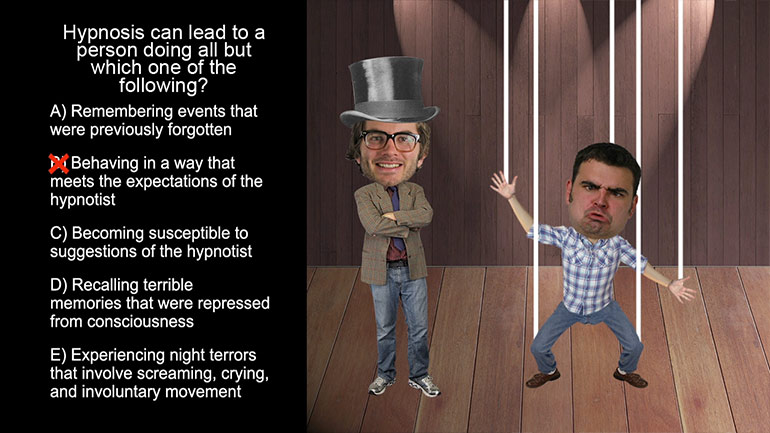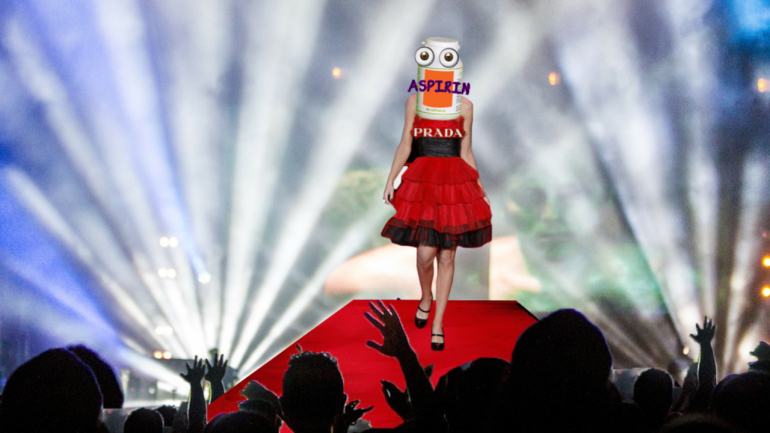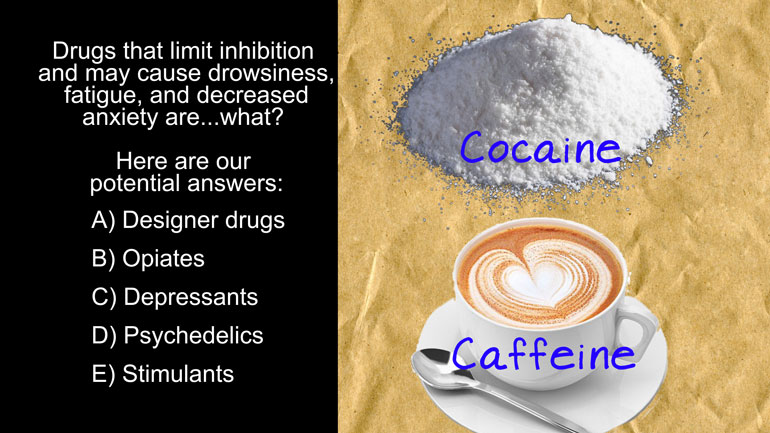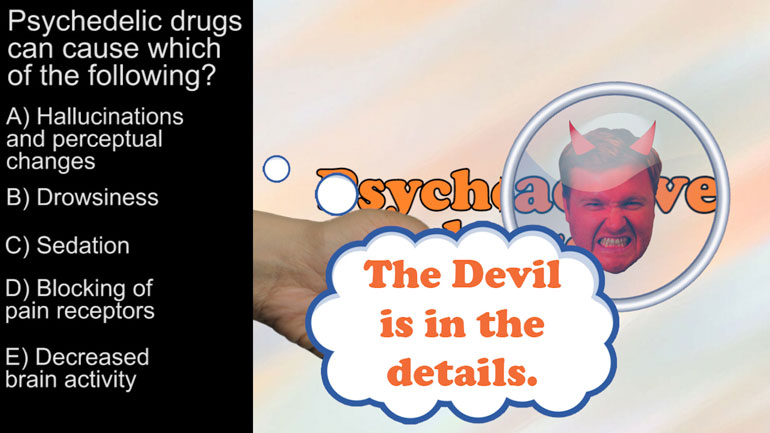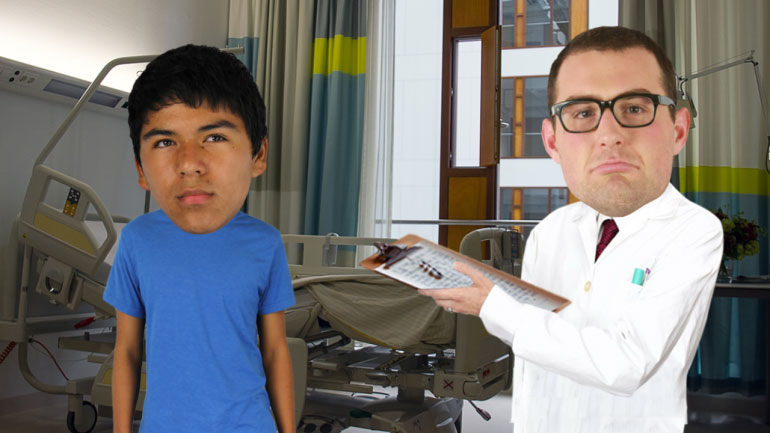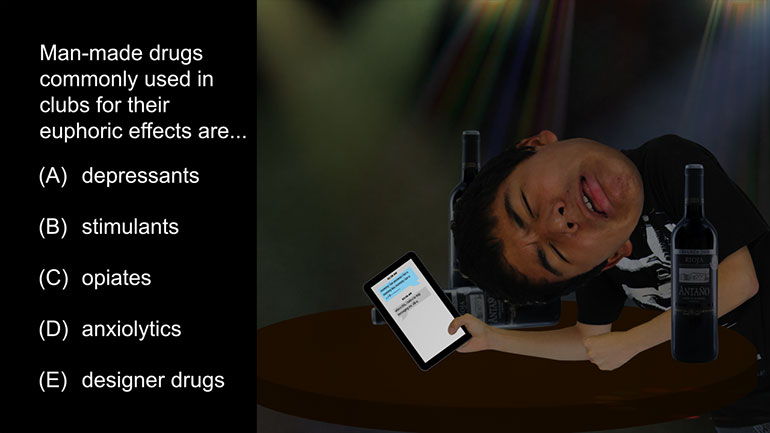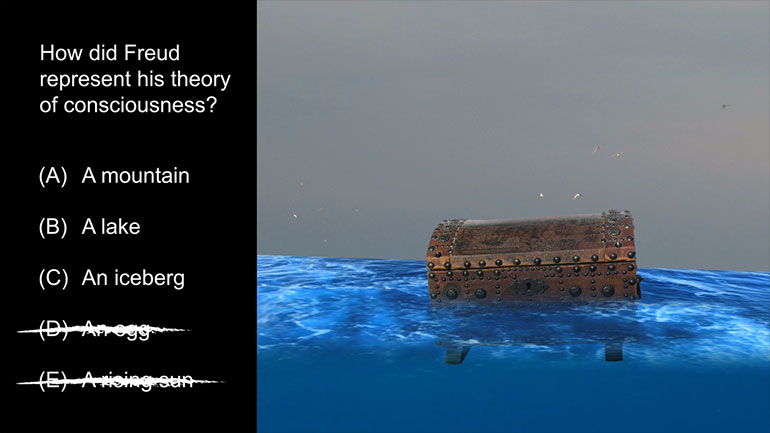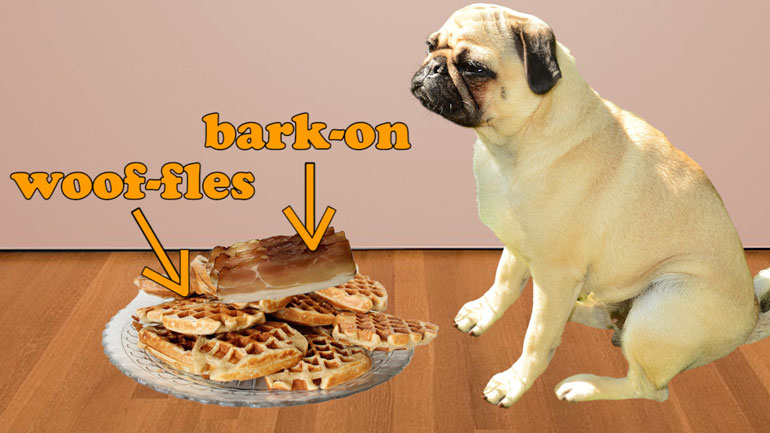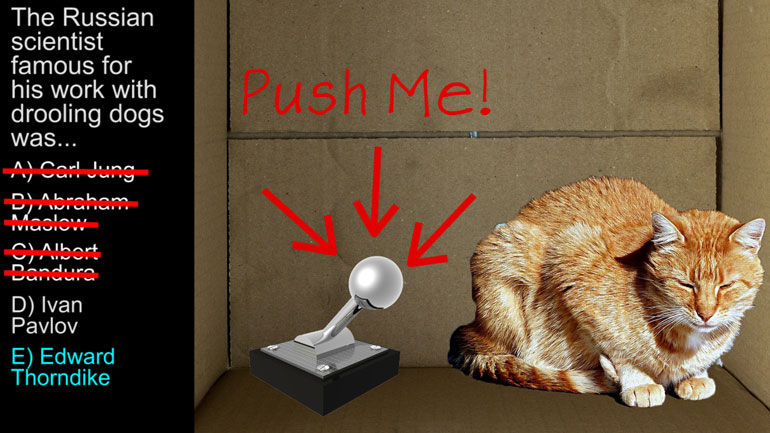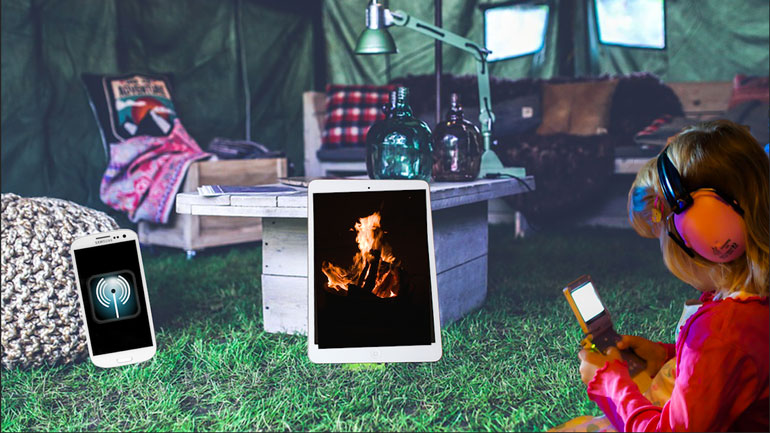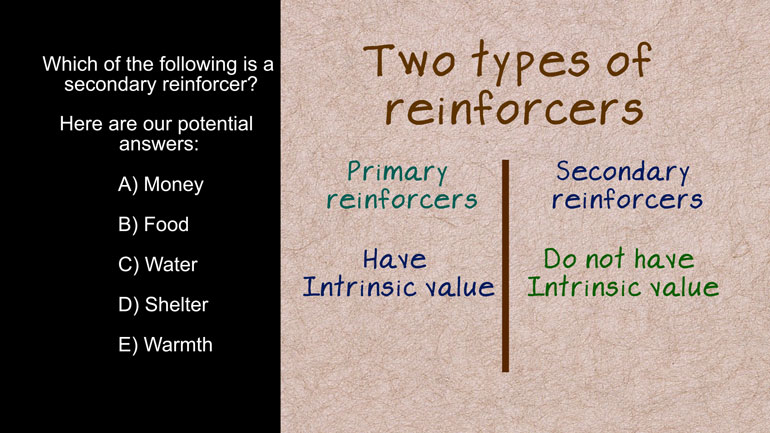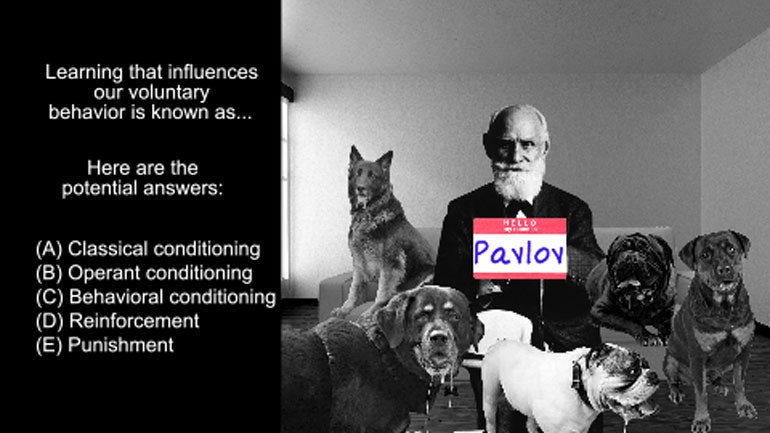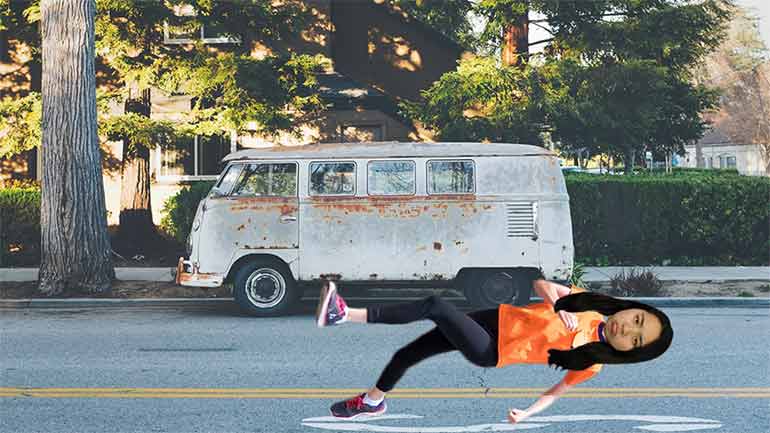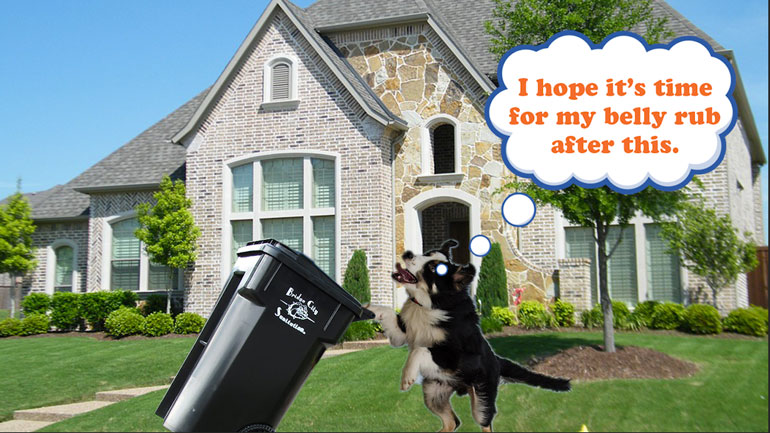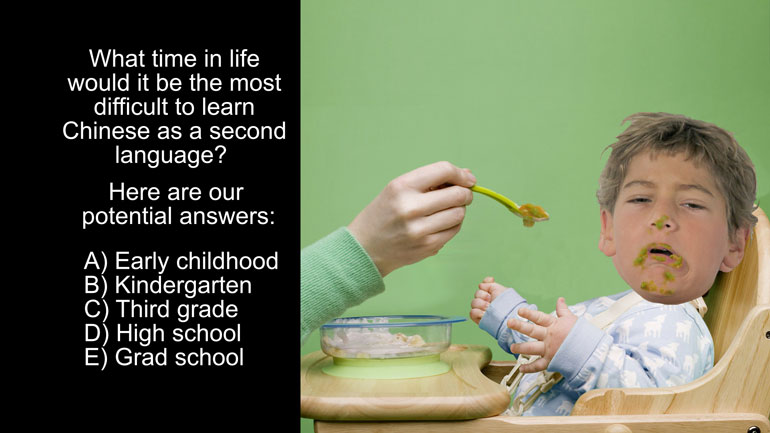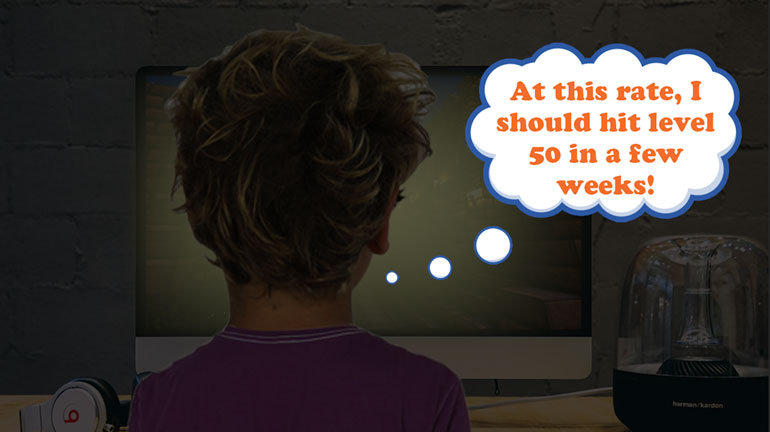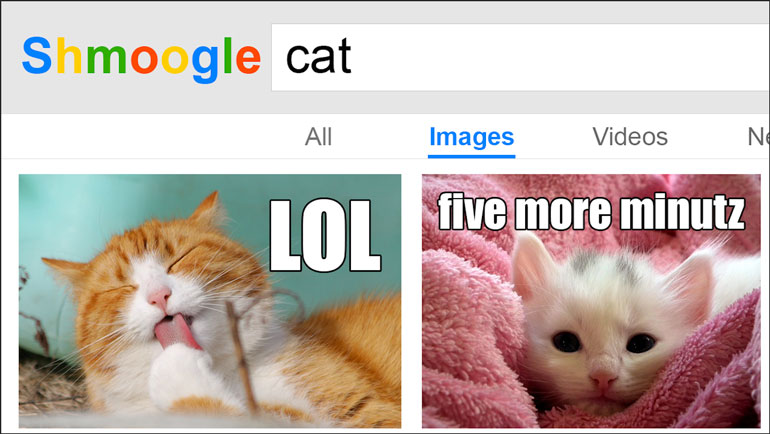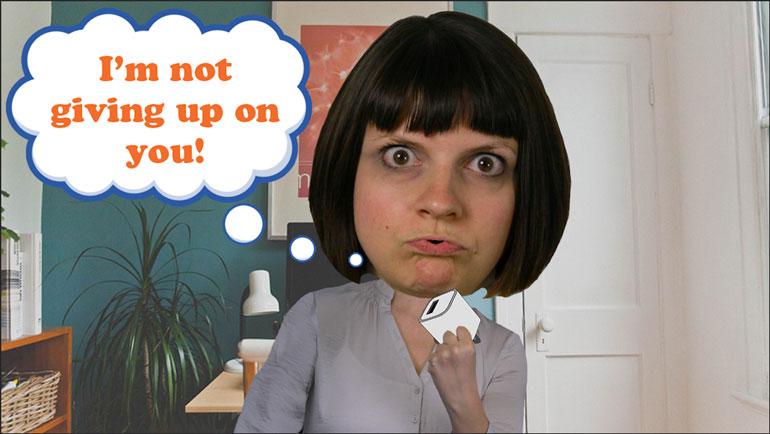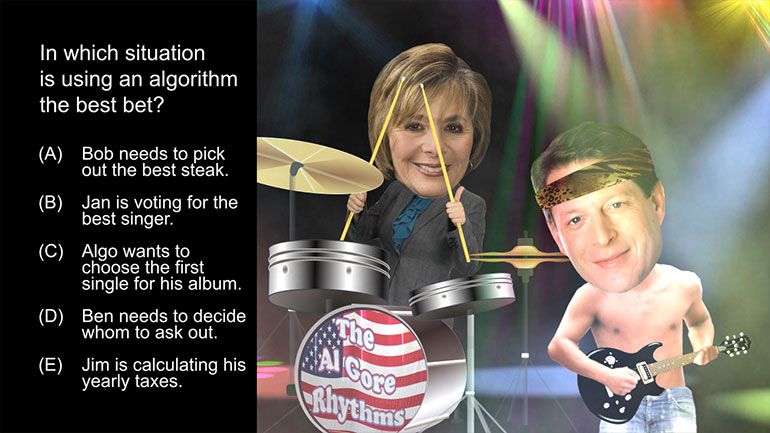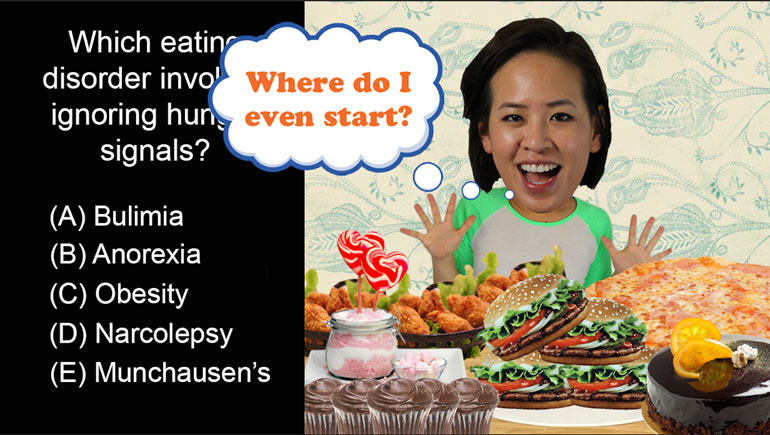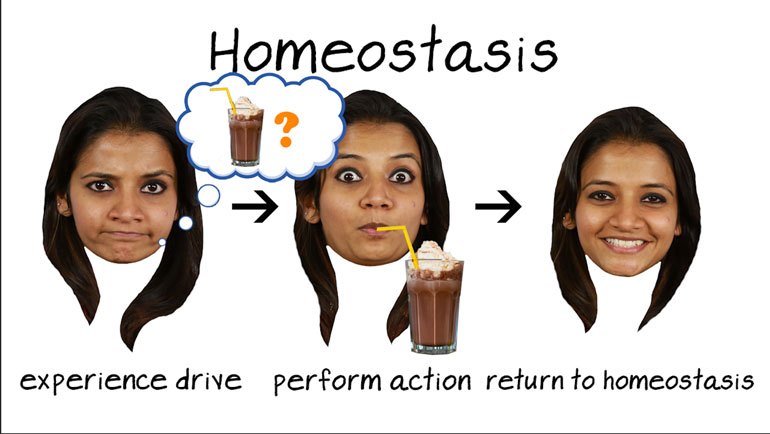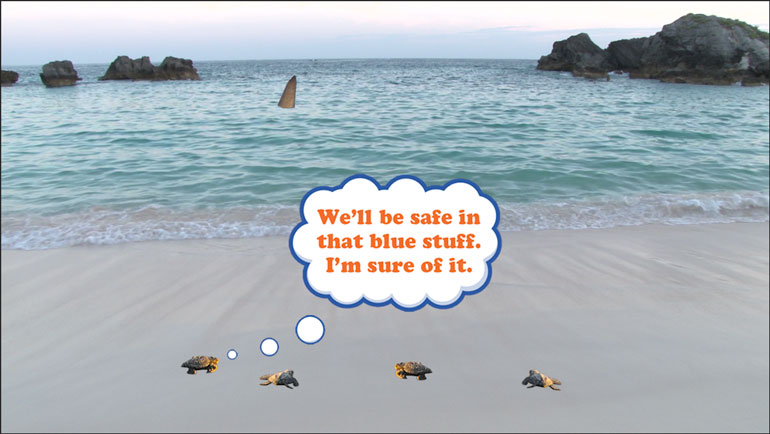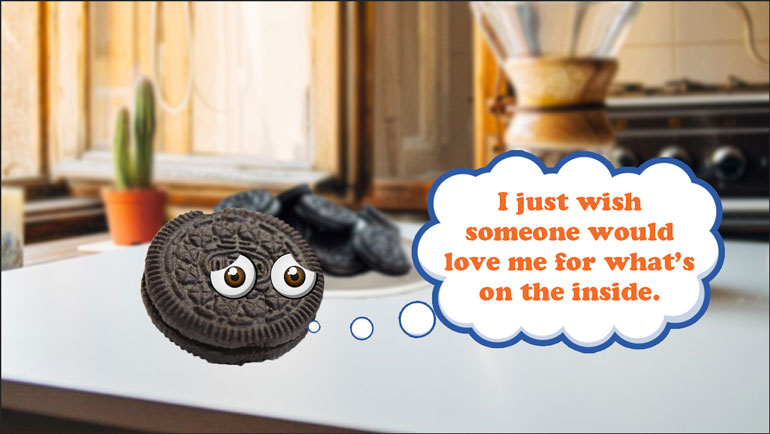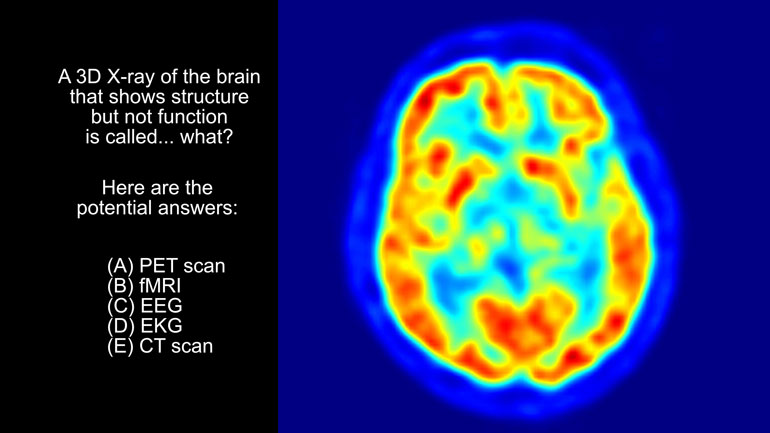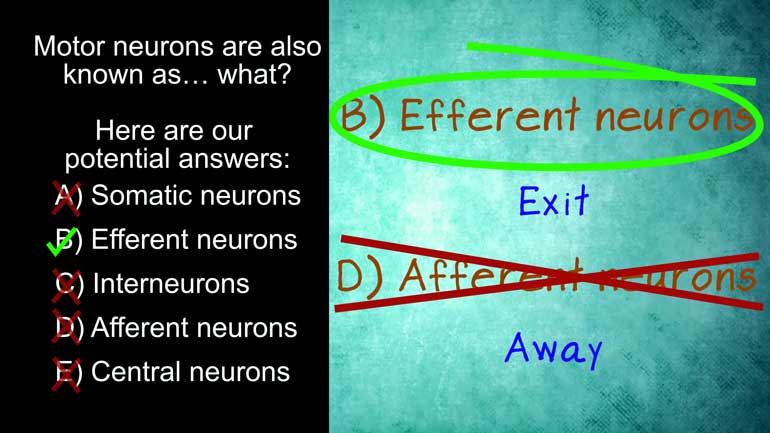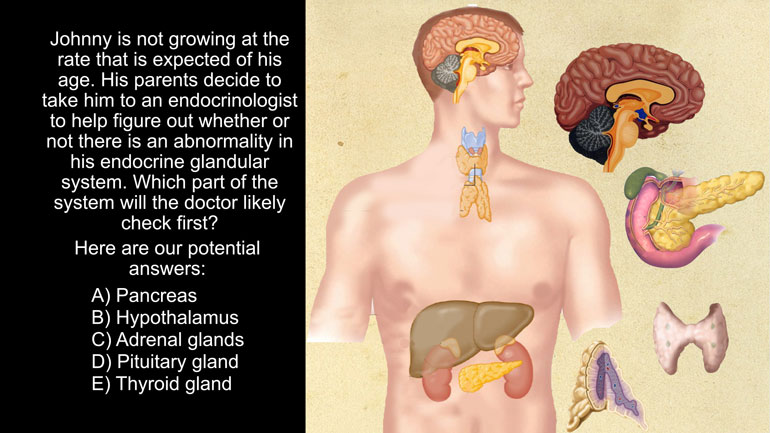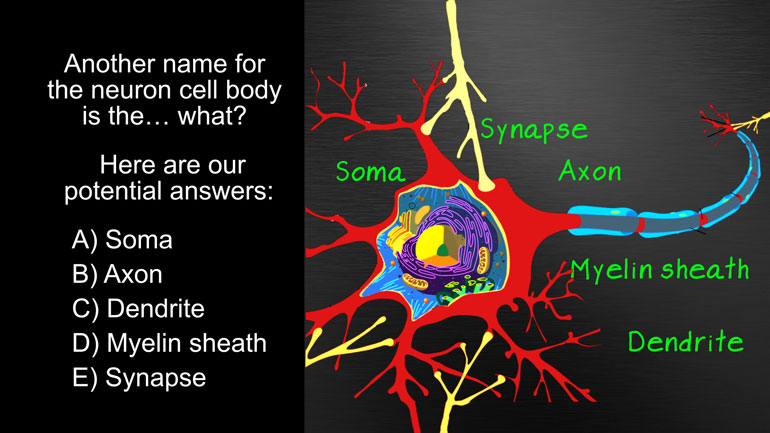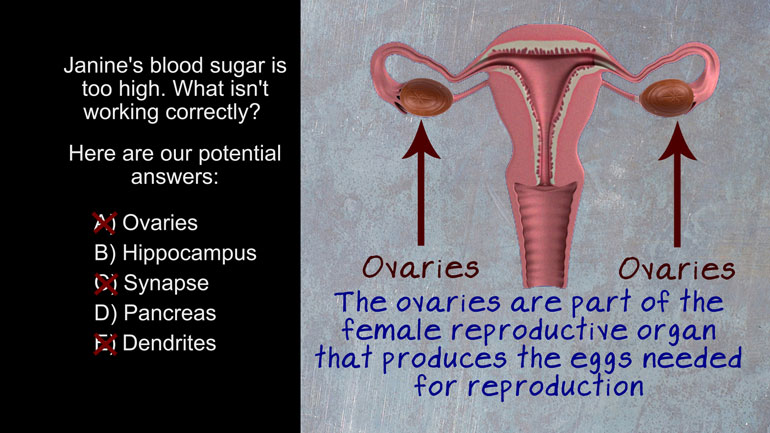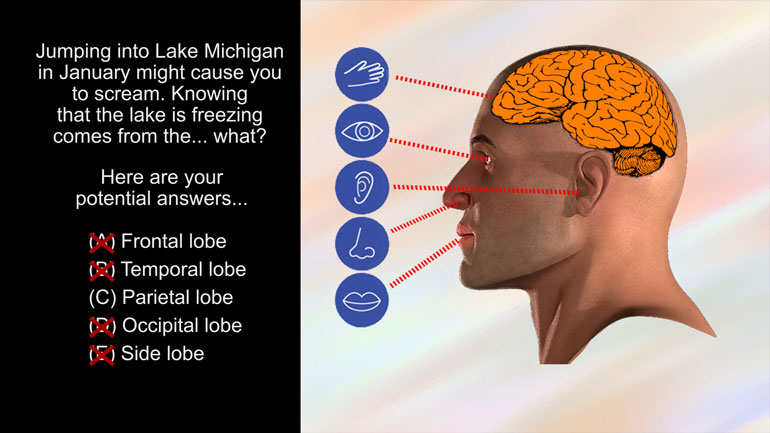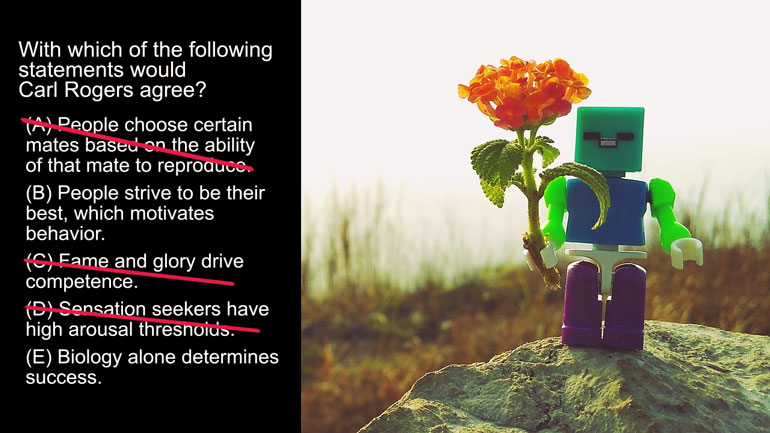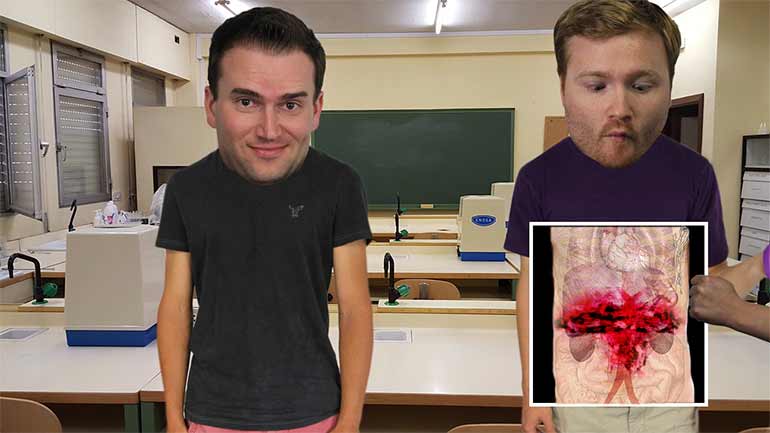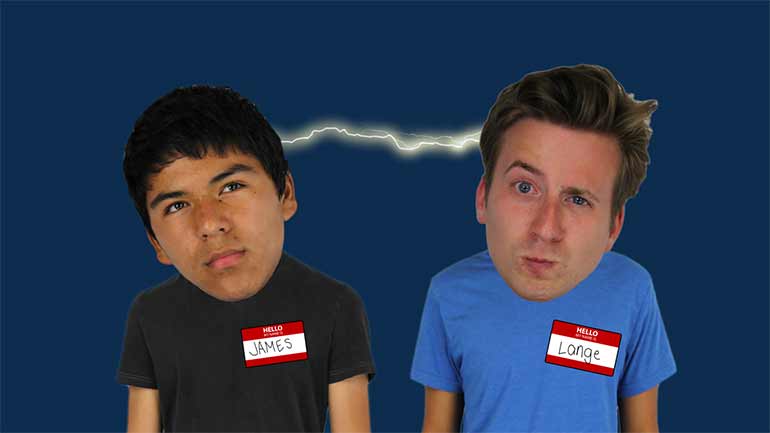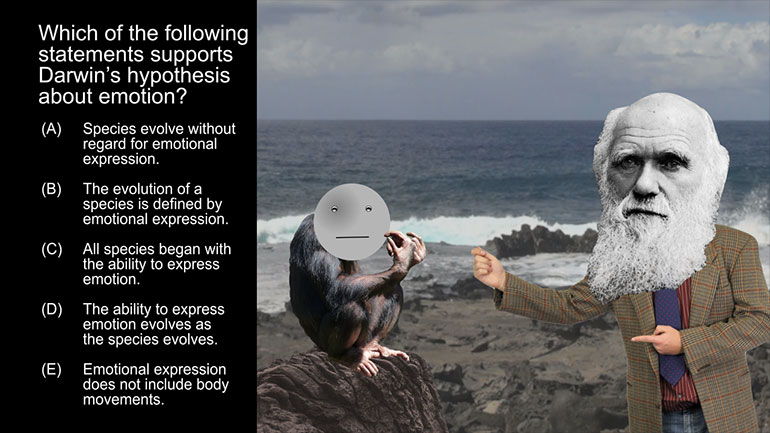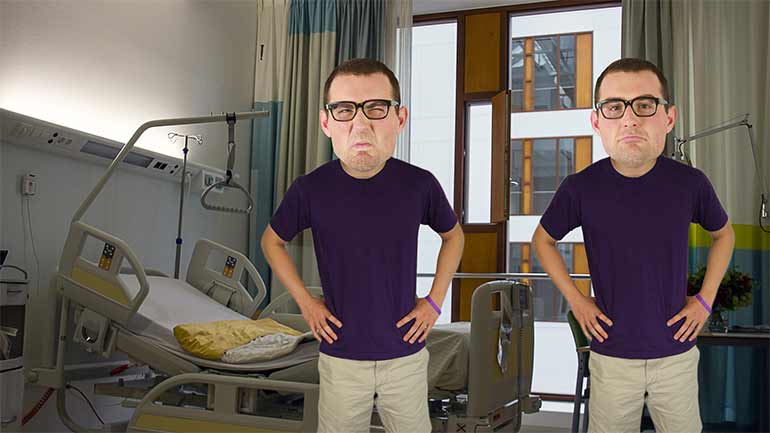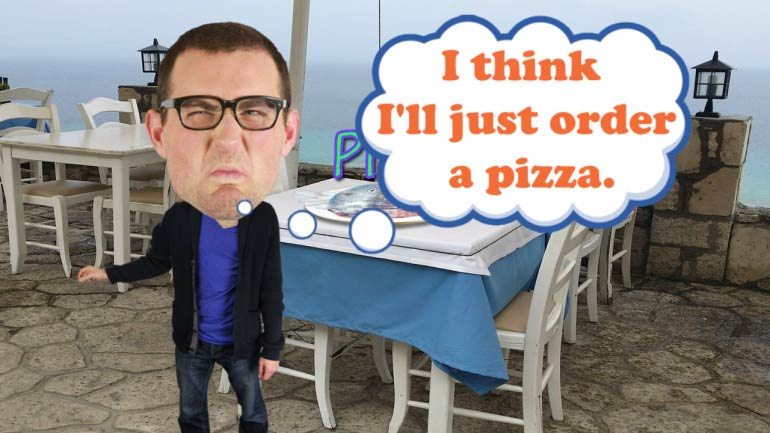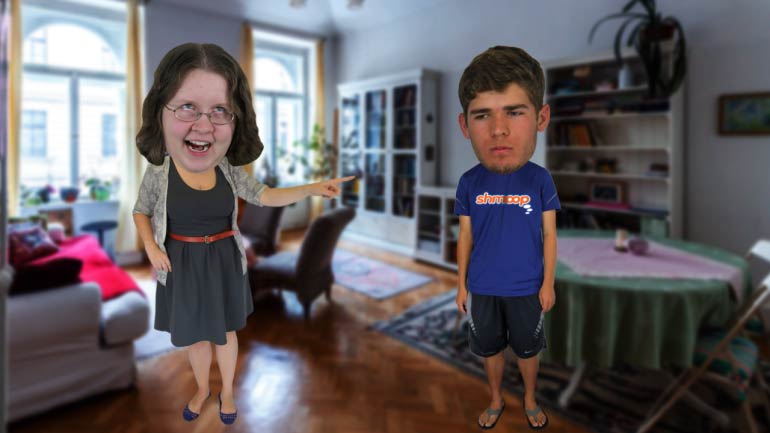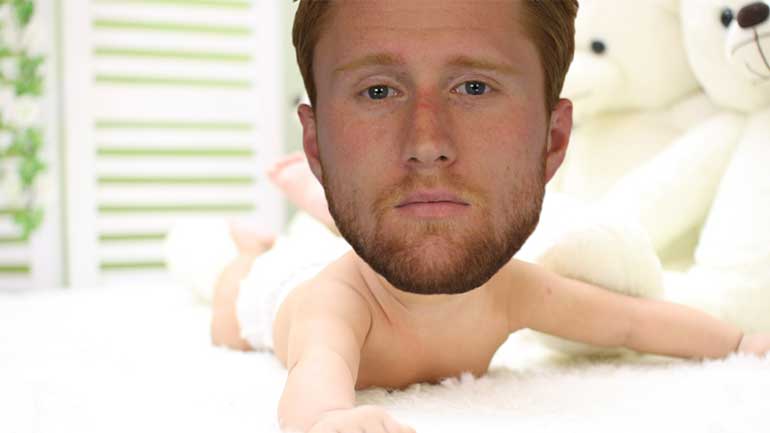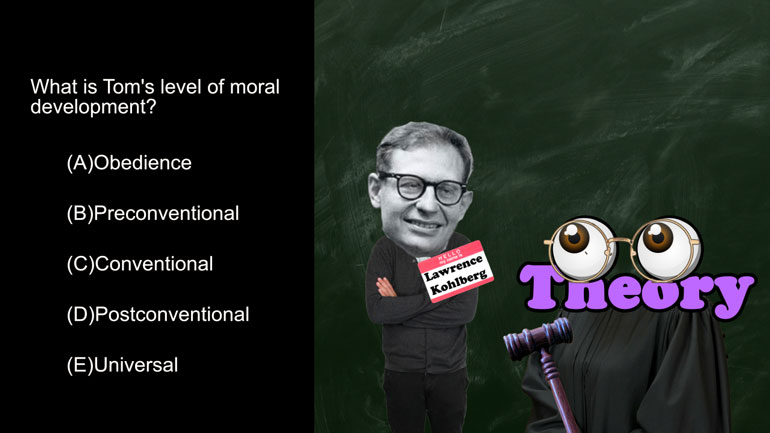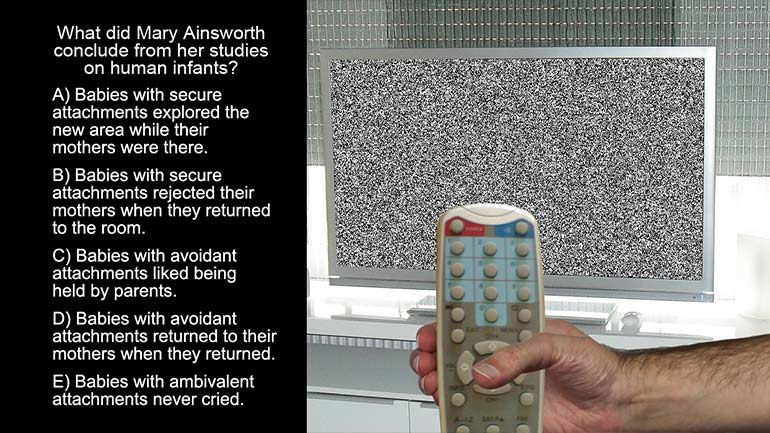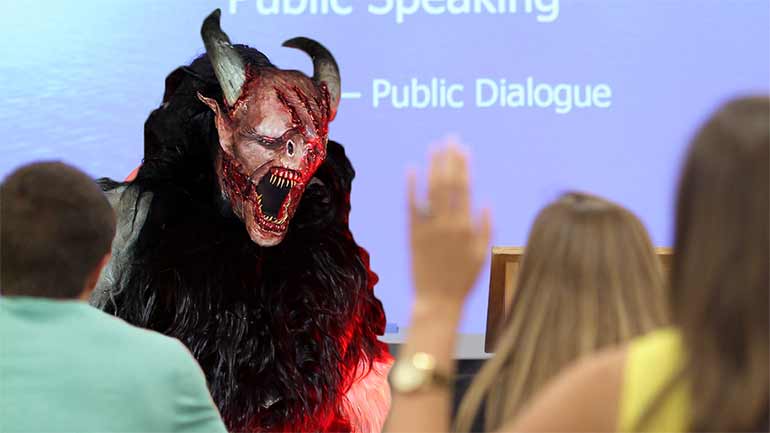ShmoopTube
Where Monty Python meets your 10th grade teacher.
Search Thousands of Shmoop Videos
AP Psychology Videos 135 videos
AP Psychology 2.3 Testing and Individual Differences. Which factor below needs to be considered in the administration and evaluation of the attenti...
AP Psychology 2.4 Testing and Individual Differences. Which of these is an example of studies used in the nature vs. nurture debate of intelligence?
AP Psychology 1.2 Developmental Psychology. How would you respond to someone stating that babies are born without any real sense of the world aroun...
AP Psychology 1.3 Research Methods 2 Views
Share It!
Description:
AP Psychology 1.3 Research Methods. What is this relationship called?
Transcript
- 00:04
Here's your shmoop du jour brought to you by honey and the age-old [People sitting in chairs with Winnie the Pooh]
- 00:07
question when will Pooh finally admit he has a problem and here's the question
- 00:13
Sally conducted an experiment to determine if eating peanut butter and
- 00:17
honey ahead of a math exam led to better scores she found an honors algebra class
- 00:21
and discovered that the algebra students who ate more peanut butter and honey
Full Transcript
- 00:24
received an average of 93 while the students who ate less peanut butter and
- 00:29
honey scored 86, this relationship is called a what
- 00:34
well let's start with A symmetric [Pooh writing on chalkboard]
- 00:41
distribution describes a statistical situation in which the values of
- 00:45
variables occur at regular frequencies like bell curves... If Sally had found that
- 00:51
both too much and too little peanut butter and honey led to identical grades [Sally with a bell curve]
- 00:55
and there was a perfect amount of peanut butter and honey that provided optimal
- 01:00
grades then this would be our answer but unfortunately for us there's not really [Pooh with peanut butter and honey]
- 01:05
such thing as the perfect amount of peanut butter and honey we always end up
- 01:08
wanting more what about B? Well a variance is the difference between a
- 01:13
projected value and the actual result a positive variance would be when the
- 01:17
result exceeds the expectation for instance a positive budget variance
- 01:23
would be when the expenses are less than predicted leading to a positive end [Girl with a dollar bill]
- 01:27
amount like if you bought two bathtubs full of peanut butter and honey would
- 01:31
cost a thousand bucks but it only ended up costing you 850 [Two bath tubs filled with peanut butter and honey]
- 01:35
okay sure we might have a problem how about C? Standard deviation is a measure
- 01:40
used to quantify the amount of variation within a set of values, well for
- 01:44
standard deviation of the test grades was a high number it would mean that [Student holding up test grades]
- 01:48
most student test scores vary greatly however if the number was close to zero
- 01:52
it would mean most people have very similar test scores, well this could
- 01:56
definitely apply to Sally's experiment it has nothing to do with the scores as
- 02:00
they relate to peanut butter and honey consumption negative correlation is [Sally with peanut butter and honey in the kitchen]
- 02:03
close but no cigar the word correlation does directly describe the relationship
- 02:10
between two variables, however the word negative is where we
- 02:13
part ways with E - In this context negative describes when two variables
- 02:18
travel in opposite directions of one another [Variables moving in opposite directions]
- 02:20
if grades went down as the peanut butter and honey consumption went up, then we'd
- 02:25
have a negative correlation however we know that's not the case in fact
- 02:29
it's the opposite as the consumption goes up so to goes grades - so we're
- 02:34
looking for the opposite of negative you wonder what that could be..... [Teacher marking out answers on board]
- 02:39
So it's D - positive correlation that's our answer
- 02:42
a positive correlation is when both sets of values increase simultaneously making
- 02:47
the relationship a positive one sounds pretty sweet to us...[Pooh with a jar of honey]
Related Videos
AP Psychology 1.1 Social Psychology. Which of the following best describes social psychology?
AP Psychology 1.1 States of Consciousness. Who conducted research on REM sleep deprivations?
AP Psychology 1.2 Cognition. Which of the following strategies would work best for generating new ideas?
AP Psychology 1.2 Sensation and Perception. The cells in the back of the eye that only see in black and white are called what?
AP Psychology 1.2 Social Psychology. What is the best choice for producing better productivity?
